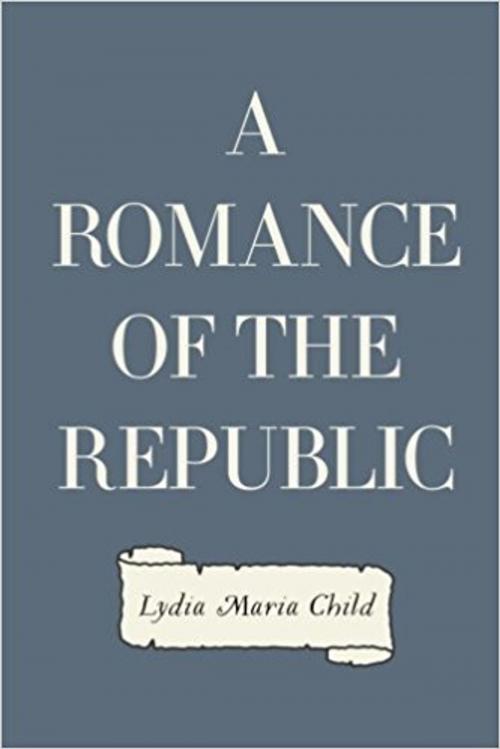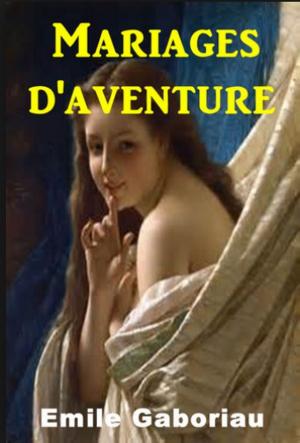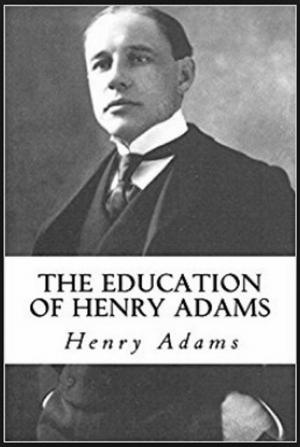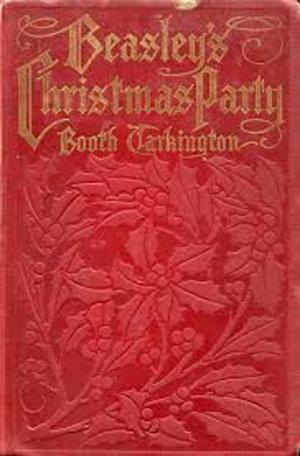| Author: | L. MARIA CHILD | ISBN: | 1230002327075 |
| Publisher: | Jwarlal | Publication: | May 18, 2018 |
| Imprint: | Language: | English |
| Author: | L. MARIA CHILD |
| ISBN: | 1230002327075 |
| Publisher: | Jwarlal |
| Publication: | May 18, 2018 |
| Imprint: | |
| Language: | English |
"What are you going to do with yourself this evening, Alfred?" said Mr. Royal to his companion, as they issued from his counting-house in New Orleans. "Perhaps I ought to apologize for not calling you Mr. King, considering the shortness of our acquaintance; but your father and I were like brothers in our youth, and you resemble him so much, I can hardly realize that you are not he himself, and I still a young man. It used to be a joke with us that we must be cousins, since he was a King and I was of the Royal family. So excuse me if I say to you, as I used to say to him. What are you going to do with yourself, Cousin Alfred?"
"I thank you for the friendly familiarity," rejoined the young man. "It is pleasant to know that I remind you so strongly of my good father. My most earnest wish is to resemble him in character as much as I am said to resemble him in person. I have formed no plans for the evening. I was just about to ask you what there was best worth seeing or hearing in the Crescent City."
"If I should tell you I thought there was nothing better worth seeing than my daughters, you would perhaps excuse a father's partiality," rejoined Mr. Royal.
"Your daughters!" exclaimed his companion, in a tone of surprise. "I never heard that you were married."
A shadow of embarrassment passed over the merchant's face, as he replied, "Their mother was a Spanish lady,—a stranger here,—and she formed no acquaintance. She was a woman of a great heart and of rare beauty. Nothing can ever make up her loss to me; but all the joy that remains in life is centred in the daughters she has left me. I should like to introduce them to you; and that is a compliment I never before paid to any young man. My home is in the outskirts of the city; and when we have dined at the hotel, according to my daily habit, I will send off a few letters, and then, if you like to go there with me, I will call a carriage."
"Thank you," replied the young man; "unless it is your own custom to ride, I should prefer to walk. I like the exercise, and it will give a better opportunity to observe the city, which is so different from our Northern towns that it has for me the attractions of a foreign land."
In compliance with this wish, Mr. Royal took him through the principal streets, pointing out the public buildings, and now and then stopping to smile at some placard or sign which presented an odd jumble of French and English. When they came to the suburbs of the city, the aspect of things became charmingly rural. Houses were scattered here and there among trees and gardens. Mr. Royal pointed out one of them, nestled in flowers and half encircled by an orange-grove, and said, "That is my home. When I first came here, the place where it stands was a field of sugar-canes; but the city is fast stretching itself into the suburbs."
They approached the dwelling; and in answer to the bell, the door was opened by a comely young negress, with a turban of bright colors on her head and golden hoops in her ears. Before the gentlemen had disposed of their hats and canes, a light little figure bounded from one of the rooms, clapping her hands, and exclaiming, "Ah, Papasito!" Then, seeing a stranger with him, she suddenly stood still, with a pretty look of blushing surprise.
"Never mind, Mignonne," said her father, fondly patting her head.
"This is Alfred Royal King, from Boston; my namesake, and the son of
a dear old friend of mine. I have invited him to see you dance. Mr.
King, this is my Floracita."
The fairy dotted a courtesy, quickly and gracefully as a butterfly touching a flower, and then darted back into the room she had left. There they were met by a taller young lady, who was introduced as "My daughter Rosabella." Her beauty was superlative and peculiar. Her complexion was like a glowing reflection upon ivory from gold in the sunshine. Her large brown eyes were deeply fringed, and lambent with interior light. Lustrous dark brown hair shaded her forehead in little waves, slight as the rippling of water touched by an insect's wing. It was arranged at the back of her head in circling braids, over which fell clusters of ringlets, with moss-rose-buds nestling among them. Her full, red lips were beautifully shaped, and wore a mingled expression of dignity and sweetness. The line from ear to chin was that perfect oval which artists love, and the carriage of her head was like one born to a kingdom.
"What are you going to do with yourself this evening, Alfred?" said Mr. Royal to his companion, as they issued from his counting-house in New Orleans. "Perhaps I ought to apologize for not calling you Mr. King, considering the shortness of our acquaintance; but your father and I were like brothers in our youth, and you resemble him so much, I can hardly realize that you are not he himself, and I still a young man. It used to be a joke with us that we must be cousins, since he was a King and I was of the Royal family. So excuse me if I say to you, as I used to say to him. What are you going to do with yourself, Cousin Alfred?"
"I thank you for the friendly familiarity," rejoined the young man. "It is pleasant to know that I remind you so strongly of my good father. My most earnest wish is to resemble him in character as much as I am said to resemble him in person. I have formed no plans for the evening. I was just about to ask you what there was best worth seeing or hearing in the Crescent City."
"If I should tell you I thought there was nothing better worth seeing than my daughters, you would perhaps excuse a father's partiality," rejoined Mr. Royal.
"Your daughters!" exclaimed his companion, in a tone of surprise. "I never heard that you were married."
A shadow of embarrassment passed over the merchant's face, as he replied, "Their mother was a Spanish lady,—a stranger here,—and she formed no acquaintance. She was a woman of a great heart and of rare beauty. Nothing can ever make up her loss to me; but all the joy that remains in life is centred in the daughters she has left me. I should like to introduce them to you; and that is a compliment I never before paid to any young man. My home is in the outskirts of the city; and when we have dined at the hotel, according to my daily habit, I will send off a few letters, and then, if you like to go there with me, I will call a carriage."
"Thank you," replied the young man; "unless it is your own custom to ride, I should prefer to walk. I like the exercise, and it will give a better opportunity to observe the city, which is so different from our Northern towns that it has for me the attractions of a foreign land."
In compliance with this wish, Mr. Royal took him through the principal streets, pointing out the public buildings, and now and then stopping to smile at some placard or sign which presented an odd jumble of French and English. When they came to the suburbs of the city, the aspect of things became charmingly rural. Houses were scattered here and there among trees and gardens. Mr. Royal pointed out one of them, nestled in flowers and half encircled by an orange-grove, and said, "That is my home. When I first came here, the place where it stands was a field of sugar-canes; but the city is fast stretching itself into the suburbs."
They approached the dwelling; and in answer to the bell, the door was opened by a comely young negress, with a turban of bright colors on her head and golden hoops in her ears. Before the gentlemen had disposed of their hats and canes, a light little figure bounded from one of the rooms, clapping her hands, and exclaiming, "Ah, Papasito!" Then, seeing a stranger with him, she suddenly stood still, with a pretty look of blushing surprise.
"Never mind, Mignonne," said her father, fondly patting her head.
"This is Alfred Royal King, from Boston; my namesake, and the son of
a dear old friend of mine. I have invited him to see you dance. Mr.
King, this is my Floracita."
The fairy dotted a courtesy, quickly and gracefully as a butterfly touching a flower, and then darted back into the room she had left. There they were met by a taller young lady, who was introduced as "My daughter Rosabella." Her beauty was superlative and peculiar. Her complexion was like a glowing reflection upon ivory from gold in the sunshine. Her large brown eyes were deeply fringed, and lambent with interior light. Lustrous dark brown hair shaded her forehead in little waves, slight as the rippling of water touched by an insect's wing. It was arranged at the back of her head in circling braids, over which fell clusters of ringlets, with moss-rose-buds nestling among them. Her full, red lips were beautifully shaped, and wore a mingled expression of dignity and sweetness. The line from ear to chin was that perfect oval which artists love, and the carriage of her head was like one born to a kingdom.















